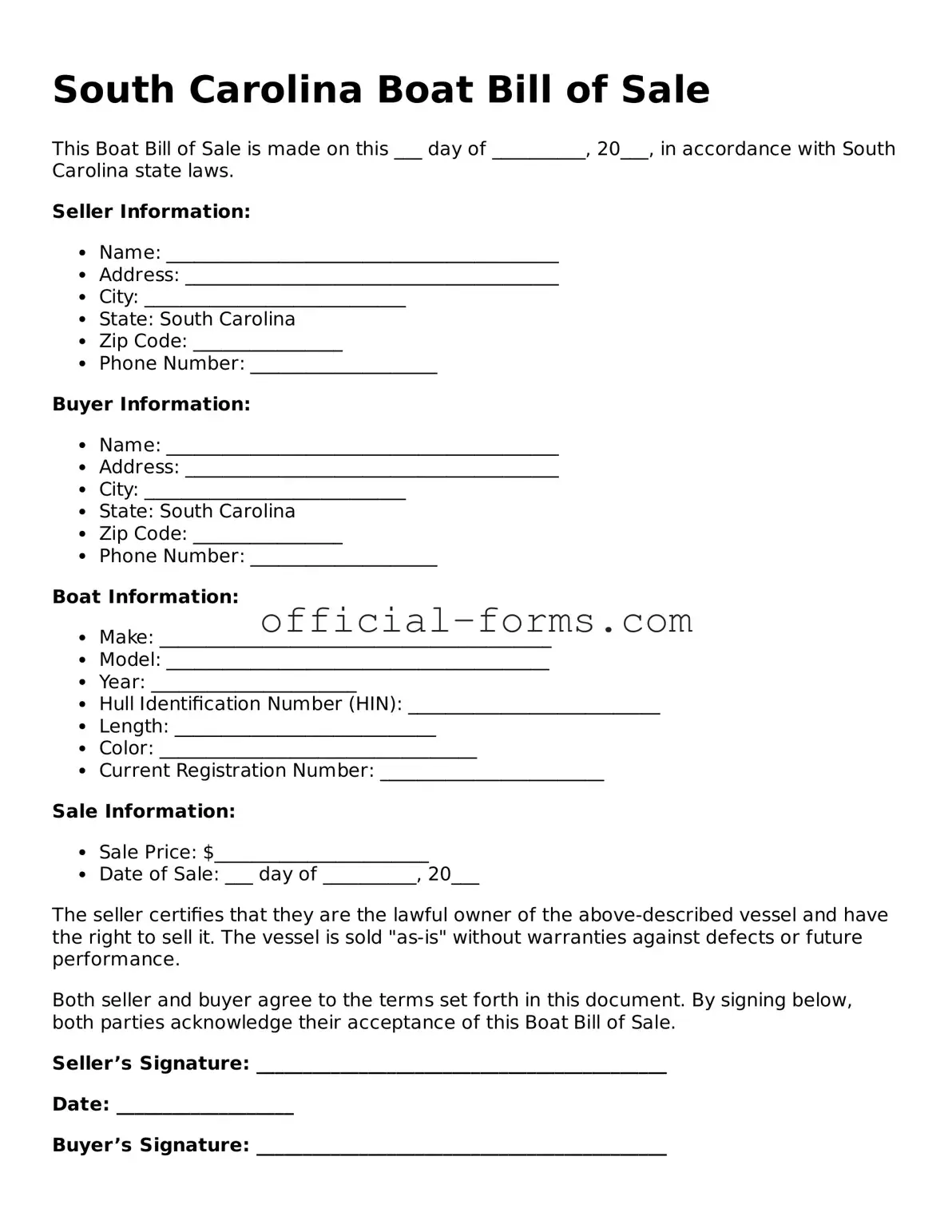Official South Carolina Boat Bill of Sale Document
The South Carolina Boat Bill of Sale form is a legal document that records the transfer of ownership of a boat from one party to another. This form serves as proof of the sale and includes essential details such as the boat's description, sale price, and the names of both the buyer and seller. Completing this form is crucial for ensuring a smooth transaction and for future registration purposes.
Open My Boat Bill of Sale Now

Official South Carolina Boat Bill of Sale Document
Open My Boat Bill of Sale Now
Don’t leave your form incomplete
Finish Boat Bill of Sale online quickly from start to download.
Open My Boat Bill of Sale Now
or
➤ PDF
